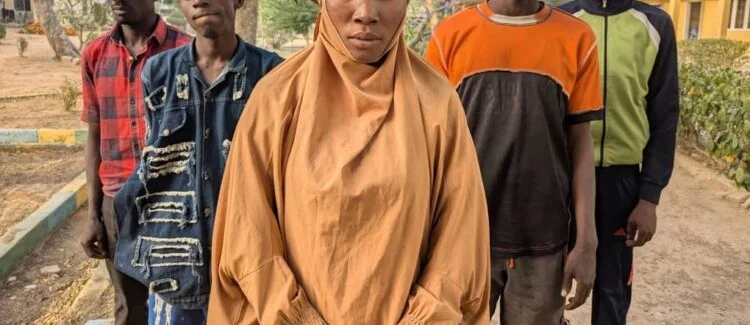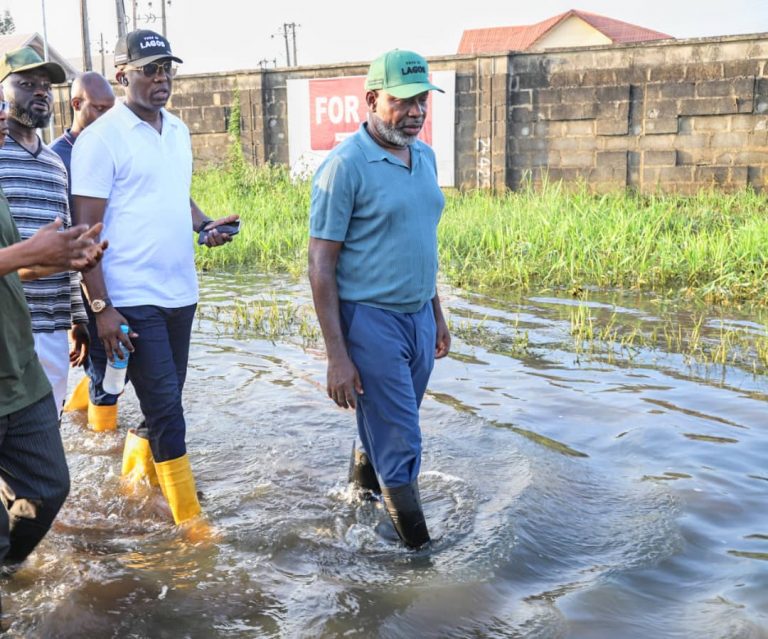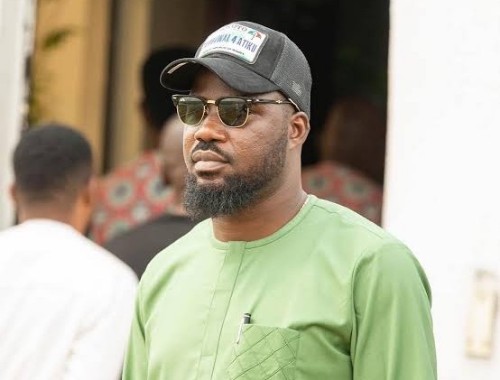As the year 2024 winds down, Barrister Tokunbo Wahab, the Lagos State Commissioner for Environment and Water Resources, has cemented his position as one of the State’s most impactful leaders.
At a time when Lagos faces immense challenges ranging from waste management to flooding, Wahab has not only spearheaded transformative policies but has actively driven their implementation with visible results.
His hands-on approach and commitment to sustainability have reshaped the environmental landscape of the bustling megacity, earning him recognition as a leader who prioritizes action over rhetoric.
This year, Lagosians witnessed a determined fight against pollution, a bold restructuring of waste management systems, and an unwavering commitment to enforcing environmental laws. Under Wahab’s stewardship, the Lagos State Ministry of Environment and Water Resources has not only addressed long-standing issues but has also set a foundation for future resilience. This is not mere administration —it is leadership rooted in urgency, creativity, and a deep understanding of the environmental and infrastructural challenges facing the state.
As Lagos grapples with rapid urbanization, climate change, and the pressures of being Nigeria’s economic hub, Wahab’s efforts remind us that sustainable development is achievable when there is political will and a sense of purpose. From innovative waste-to-wealth initiatives to tackling open defecation and protecting Lagos’ green spaces, here’s an in-depth look at what Wahab has accomplished in 2024 and why his leadership matters.
Transforming waste management and sanitation: Waste-to-wealth initiatives and partnerships
This year marked a turning point in Lagos’ approach to waste management. Wahab, as the Man in charge of Environment, introduced waste-to-wealth programs designed to convert the City’s 13,000 tons of daily waste into valuable resources such as compost, energy, and recyclable materials.
Collaborating with private-sector partners, the state signed agreements to establish modern recycling plants and waste conversion facilities, creating a model that not only addresses waste disposal but generates economic opportunities. These initiatives have also provided jobs for informal waste pickers, integrating them into the formal economy.
Single-use plastics ban
In January 2025, Lagos will officially ban single-use plastics—a significant policy shift announced by Wahab this year. To prepare for this transition, his ministry launched an extensive public education campaign targeting businesses and residents, raising awareness about the environmental hazards of plastic waste. The ban, coupled with expanded recycling programs, is expected to significantly reduce plastic pollution, which has long plagued the city’s drainage systems and waterways.
Flood mitigation through better drainage systems
Flooding has been a perennial challenge in Lagos, particularly during the rainy season. Wahab’s leadership saw a proactive response, with major drainage systems cleared across the state.
Notable projects include the restoration of System 6C (Lord Chosen Canal) and work along the Orchid Corridor, areas notorious for heavy flooding.
His ministry also collaborated with local communities, encouraging residents to keep drains free of debris and participate in cleanup efforts. These interventions have brought tangible relief to neighborhoods that previously suffered devastating floods.
Combatting open defecation
Wahab’s ministry intensified its campaign against open defecation this year, enforcing sanitation laws while commissioning public toilet facilities in densely populated areas.
The effort is part of a broader plan to improve public hygiene and prevent the spread of diseases linked to poor sanitation. Advocacy efforts reached schools, markets, and community centers, ensuring that the message of clean and accessible sanitation was widely understood.
Enforcing environmental laws and green standards: Noise and air pollution enforcement
Wahab’s crackdown on noise pollution was a defining moment in 2024. Several establishments, including churches, mosques, and nightclubs, were sealed for violating noise regulations under the Lagos State Environmental Management and Protection Law of 2017.
This enforcement has brought long-needed relief to residents affected by excessive noise and set a precedent for future regulatory compliance.
Combating illegal street trading
Illegal street trading, especially the roadside sale of livestock and sickly puppies, has posed environmental and public health risks.
Wahab ensured strict enforcement of the law this year, deploying Kick Against Indiscipline (KAI) operatives to address the issue. This action not only protected public health but also reinforced the rule of law in Lagos’ marketplaces.
Tackling expired products in markets
In addition to enforcing pollution laws, Wahab targeted the sale of expired products in Lagos markets. The ministry conducted inspections and penalized offenders while urging traders to prioritize consumer safety.
His zero-tolerance approach underscored the government’s commitment to public health.
Promoting sustainable real estate development
At the Lagos Real Estate Marketplace Conference & Exhibition, Wahab emphasized the importance of green standards in Lagos’ booming real estate sector.
Partnering with agencies like LAWMA, LASEPA, and LASPARK, he ensured that environmental protection remains a core principle in urban development.
Restoring ecosystems and empowering communities: Reviving green spaces and protecting wetlands
In 2024, LASPARK, under Wahab’s supervision, restored several green spaces across Lagos. Parks were renovated, tree-planting campaigns were launched, and wetlands were protected from encroachment. These efforts have not only improved air quality but also provided recreational opportunities for residents.
Public awareness and grassroots engagement
Wahab has been a vocal advocate for environmental stewardship, leading campaigns that emphasize community responsibility.
Through the #CleanerLagos initiative, he has inspired grassroots efforts to promote cleanliness in neighborhoods. His focus on behavioral change has resonated with residents, making environmental conservation a shared responsibility.
Integrated waste management systems
Recognizing the need for long-term solutions, Wahab’s ministry introduced integrated waste management systems that combine recycling, composting, and safe disposal.
This approach has streamlined waste processing and reduced the pressure on Lagos’ landfill sites, offering a sustainable path forward.
Improving access to potable water
The Lagos State Water Corporation, under Wahab’s direction, repaired critical pipelines, including those in Yaba, ensuring access to clean water for thousands of residents.
This achievement reflects the ministry’s broader commitment to infrastructure improvement.
Conclusion: A legacy of action and hope
Wahab’s leadership in 2024 represents a paradigm shift in how Lagos approaches its environmental challenges. His policies and projects demonstrate a clear understanding of the complex interplay between urban growth, environmental sustainability, and public health.
Beyond addressing immediate issues, Wahab has laid the foundation for a more resilient and sustainable Lagos.
His work has shown that leadership is not about lofty promises but about rolling up one’s sleeves and driving change where it matters most.
From combating flooding to enforcing environmental laws, from advocating for waste conversion to restoring green spaces, Wahab’s achievements this year are a testament to what is possible when determination meets vision.
As Lagosians look to 2025, the path forward is clear: building on the successes of 2024, embracing sustainable practices, and fostering a city where everyone plays a role in protecting the environment.
Tokunbo Wahab has not only set the bar high but has also shown us what true environmental stewardship looks like.


 BIG STORY2 days ago
BIG STORY2 days ago
 BIG STORY5 days ago
BIG STORY5 days ago
 BIG STORY4 days ago
BIG STORY4 days ago
 BIG STORY15 hours ago
BIG STORY15 hours ago
 BIG STORY4 days ago
BIG STORY4 days ago
 BIG STORY3 days ago
BIG STORY3 days ago
 BIG STORY3 days ago
BIG STORY3 days ago
 BIG STORY4 days ago
BIG STORY4 days ago























